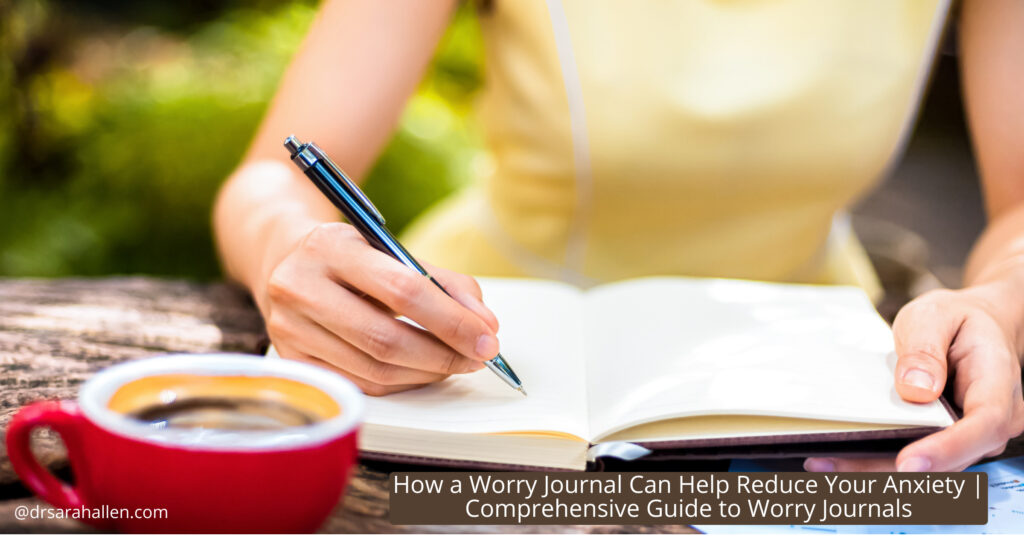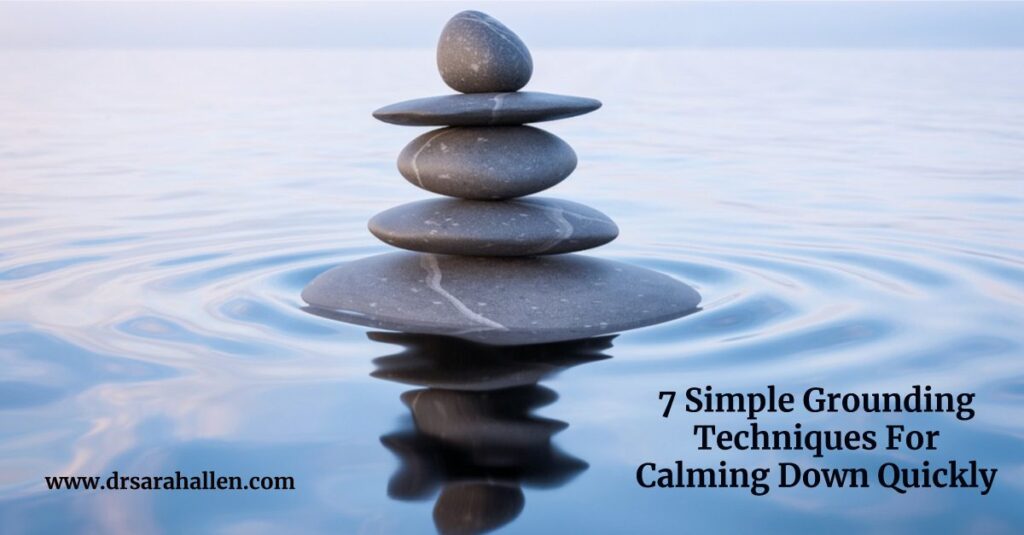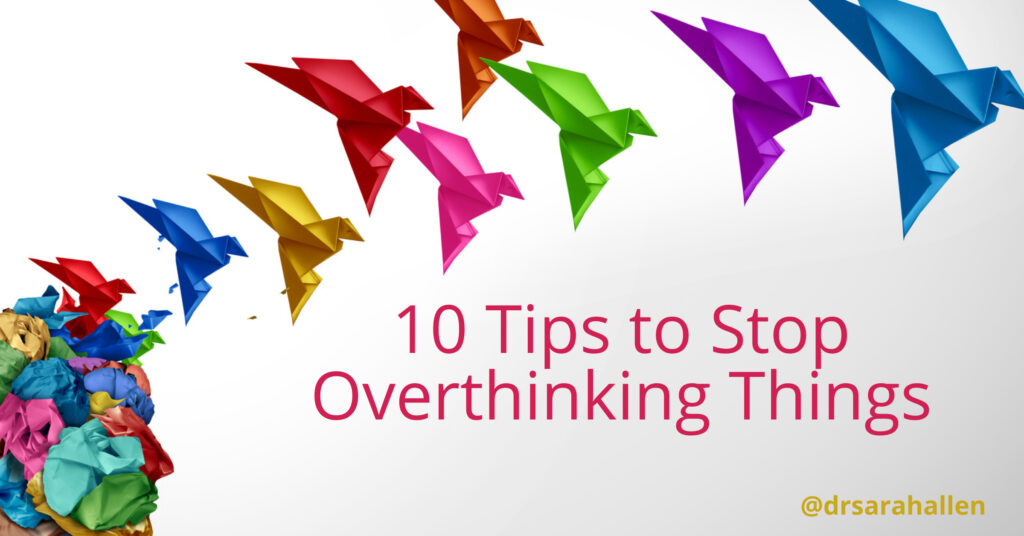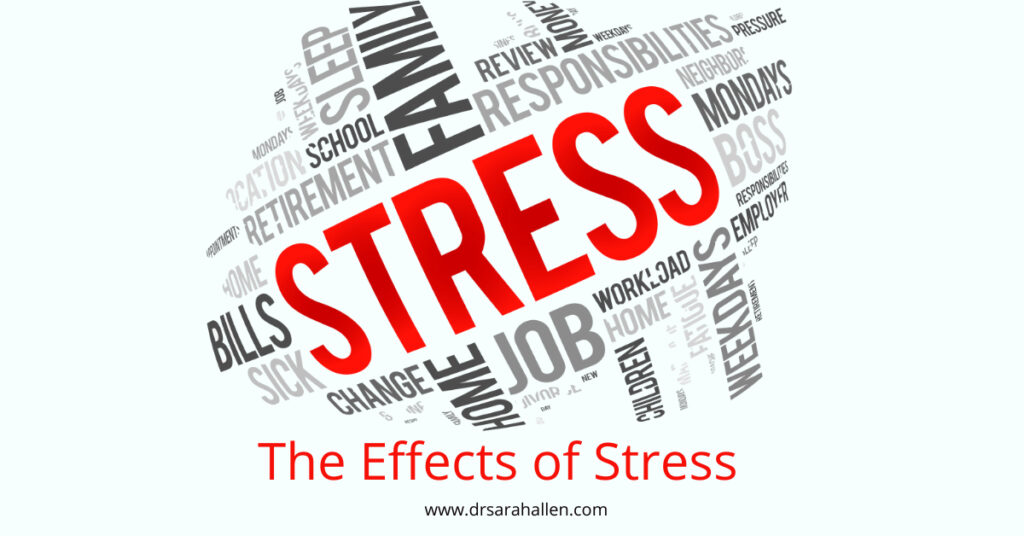
What Happens When We Don’t Manage Stress Effectively?
In small doses, stress can actually be useful as it helps you to stay focused, alert and increases energy. But when stress becomes chronic though, it can damage your health, mood and relationships. Basically, your overall quality of life!
Stress has a way of creeping up unnoticed, until feeling frazzled and overwhelmed becomes your new normal. Often, you may not even realize the extent to which it’s impacting you. That’s why it’s crucial to identify the signs of stress early and take proactive steps to regain control and ease the overwhelm.
Once you have identified how stress affecting you, we will look at 6 ways to feel less stressed and worried.
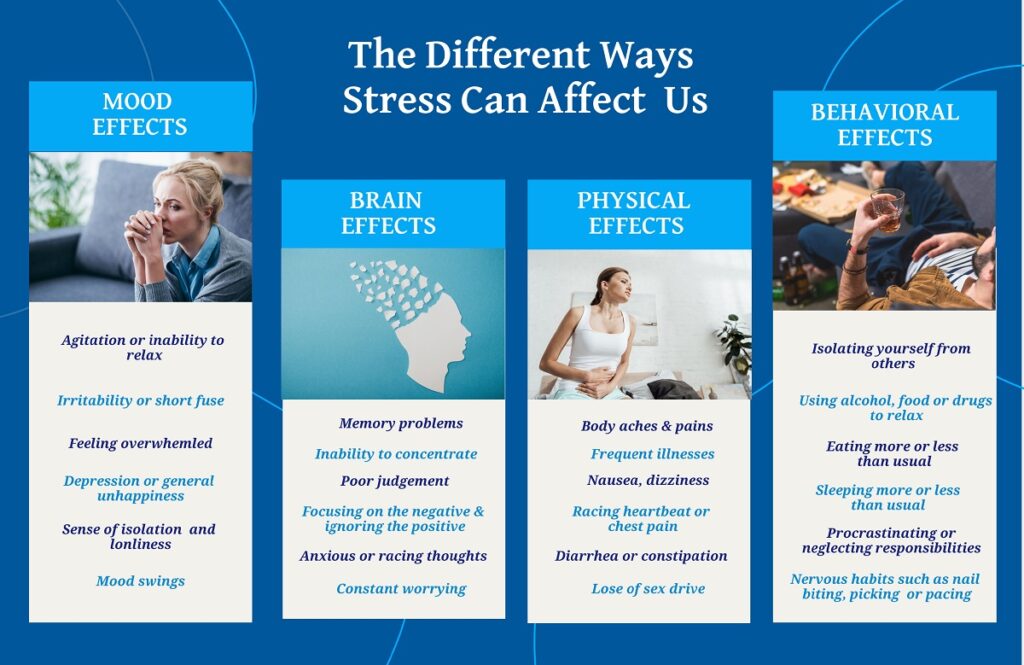
Here Are Six Things You Can Do Now To Reduce Stress and Stop Worrying
1. Stop The Adrenaline
When you are stressed, adrenaline runs through your body. Your heart beats fast, your body tenses up and one very important effect is that your thoughts race. Racing thoughts make thinking clearly difficult and that is when you get overwhelmed and stressed. Doing a quick breathing exercise clears your thoughts and lets you take a time out so you can come back to the situation and deal with it calmly.

1. Take a slow breath in through the nose, breathing into your lower belly so you feel it inflate like a balloon (for the count of 4)
2. Hold your breath for 1 or 2 seconds
3. Exhale slowly through the mouth so that you are pushing out the air in the “balloon” and you feel your belly suck in (for the count of 5)
4. Make sure the exhale breath is one or two counts longer that the inhale breath as this activates a greater relaxation response.
5. Wait a few seconds before taking another breath
Deep breathing triggers the stimulation of the vagus nerve which is a nerve running from the base of the brain to the abdomen. The vagas nerve then emits a chemical (the neurotransmitter acetylcholine) and that dampens our nervous system, lowering heart rate, relaxes muscles and most importantly, stops your thoughts from racing so you can think straight. As a psychologist I have been telling people the benefits of deep breathing for over 20 years but it is only the past few years with the advances of brain imaging that we know how the process works.
More details about how and why this works can be found in my blog post A Simple Way To Keep Calm
You can also read about other breathing techniques in Take a Deep Breath: How Deep Breathing Helps Combat Anxiety
2. Get Enough Sleep

Getting more sleep sounds easy in theory, but so many people find it hard to achieve. It is the most important thing to change if you are feeling stressed though. The average amount of sleep needed by adults for their body and mind to be fully rested is around seven hours a night. This of course can vary but you know you aren’t getting enough when your mood is negatively affected. Lack of sleep can stop you thinking clearly, wrecks productivity and can alter your mood significantly. The “walking tired” anger more easily, have problematic relationships and are less likely than those who sleep well to exercise, eat healthfully, and engage in fun leisure activities; all because they are too tired.
What with work, errands and seeing to their family’s needs, women have so much to do that often they feel they can only get them done by staying up late. My clients also tell me they stay up late as it is the only way to get some “me time”. Staying up late is probably not working for you though and improving your sleep is one of the best ways to improve the quality of your life. We need to work on being either more organized or less perfectionist about getting things done, knowing it’s okay to ask and expect help, and knowing it is totally necessary to have “me time”. But not at the expense of sleep!
I also have a lot more info on my blog post Sleep – Why It Is Important & How To Get It
3. Build In Time To Stop & Relax
I often hear my clients say “Come on, how on earth will I be able to make time for myself when I have so much to do?” and I always reply, if you don’t look after yourself you won’t have the reserves to take care of all the other people in your life you take care of. When our reserves are low we’re cranky, overly sensitive and generally not as happy as we want to be. So please take some time each day, even if it only 10 minutes, to relax.
- Have a warm bath (not hot) as this will help your body reach a temperature that’s ideal for rest.
- Writing “to do” lists for the next day can organize your thoughts and clear your mind of any worrying thoughts that pop in to your head (more about that later…)
- Relaxation exercises, such as light yoga stretches, help to relax the muscles. Don’t exercise vigorously though, as it will have the opposite effect.
- Relaxation/guided meditation apps can help as they use a hypnotic voice to guide you through muscle relaxation and soothing music and sound effects to relax your brain.
- Watching TV or any computer or phone screen keeps the brain engaged and active so it is harder to fall asleep. It is better to read a book or listen to the radio as that relaxes the mind by distracting it from the present worries.
4: Don’t Run Yourself Ragged
Say no! If you are a people-pleaser it is very hard to say no when someone asks you to do something, even if your schedule is already overwhelming. I suggest that you always say “let me get back to you on that” then actually ask yourself:
a) Do I want to do it?
b) Do I have time to do it without making myself overwhelmed?
It is usually easier to say no when you are not face to face with someone.
5. Stress Is Closely Related To Worry So Worry Less
So how do we worry less? Obviously easier said than done but the first step is to distinguish between worries that require your attention and worries that are unnecessary.
The following questions can help you clarify this:
“Can I do something about this problem?”
“Is this something I always worry about, but nothing ever happens?”
“Is this something that has a solution?”
“Will my worrying make this situation better or worse or have no effect at all?”

If there is something you can do about the problem, take action or consciously choose not to take action.
People often delay or avoid taking action or making decisions because they are worried about making a mistake.
If the situation is out of your control and there is nothing you can do, worrying does not make the situation better!
Tell yourself that your worries are not helpful and let them go. Again , I know this is easier said than done, but it can improve with practice.
It can help to challenge your thoughts about the worry and ask yourself:
“Where’s the evidence for that?” or
“What would be so bad about that?” or
“Is this problem so important that I should spend all my time thinking about it?”
To read more about reducing worry read The Number One Question That Helps Worrying
6. Reduce A Worry’s Power Over You

One very effective way to reduce a worry’s power over you is by getting the negative thoughts out of your head and on to paper. Being able to see the worry in black and white helps give you more perspective.
Study your worries by keeping a Worry Diary.
Write down what you fear might happen (be as specific as possible) and then later write down if what you were worried about actually happened, whether it was as bad as you expected, and what you did to cope with the situation.
This will help you understand your worries better, distinguish between worries that are useful and those that are useless, and help you realize that you can cope no matter what happens.

- Set aside some time during the day to worry— your “worry time”. Select a time every day that is convenient for you and pick a suitable amount of time to worry (half an hour, one hour). Use this time to think about your worries and about possible resolutions. It can be helpful to write things down. It will take time to train yourself not to dwell on worries at other times of the day or night.
- Practice is key here. What you can do if you worry outside of the set aside time is to write the worry down and put it in a “worry box” (you can use an empty tissue box for this or write the worry in a list you keep on your smart phone). Then, when it’s your official worry time, you can look at your worries and deal with them appropriately.
- Keep a pen and a pad of paper for worries that come to you at night. Night worries can go round and around in our head as it seems so important at the time to remember them. This can cause adrenaline levels to start rising in your body which of course, keeps you awake and your thoughts racing more. Writing the worry down and then distracting yourself (read using a book light or do a relaxation techniques) calms you physically and mentally, allowing you to get to sleep.
If you would like to learn more about worry journals read Discover How a Worry Journal Can Help Reduce Your Anxiety
I hope you find these 6 tips useful. If you would like to read more ways to overcome anxiety and worrying please scroll down to download my free booklet and read the many other blog posts I have written.

If you have any questions, or would like to set up an appointment to work with me and learn how to reduce anxiety, please contact me at 847 791-7722 or on the form below.
If you would like to read more about me and my areas of specialty, please visit Dr. Sarah Allen Bio.
Dr. Allen’s professional licenses only allows her to work with clients who live in IL, FL & the UK and unfortunately does not allow her to give personalized advice via email to people who are not her clients.
Dr. Allen sees clients in person in her Northbrook, IL office or remotely via video or phone.

What Can I Read That Helps Me While I Am Waiting For My First Appointment With Sarah?
Download this free booklet to gain valuable insights and practical strategies for managing anxiety and worrying.












